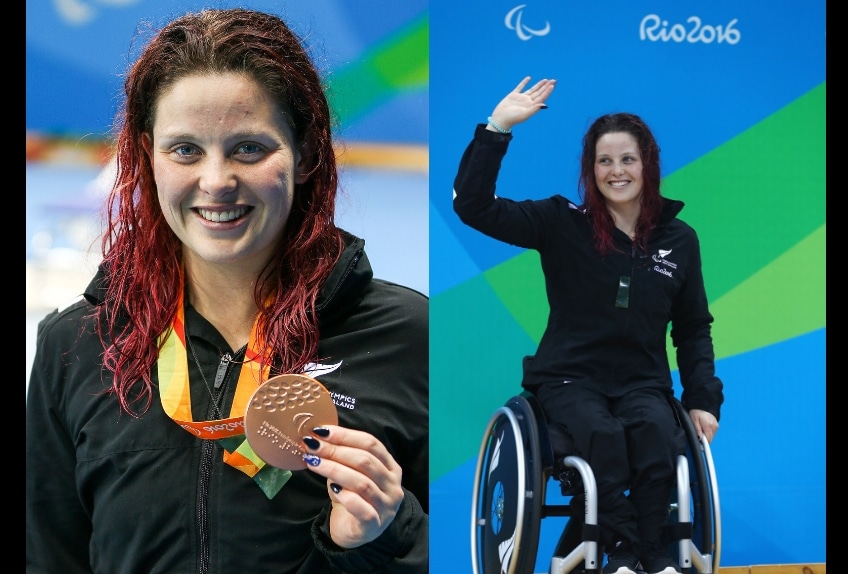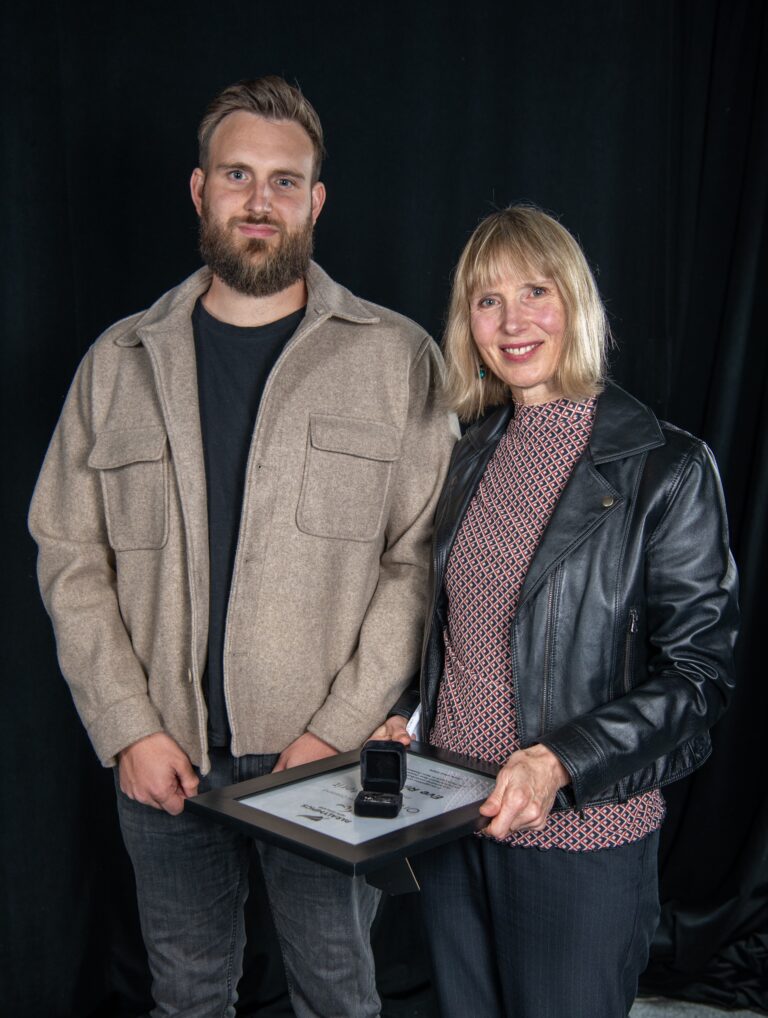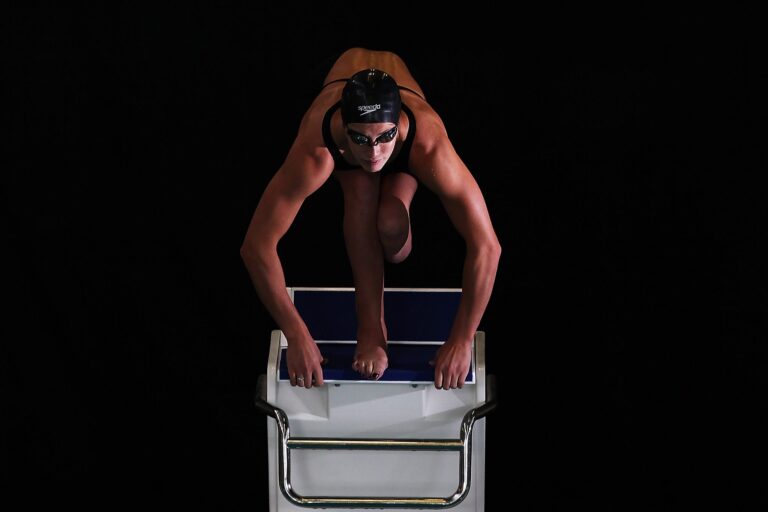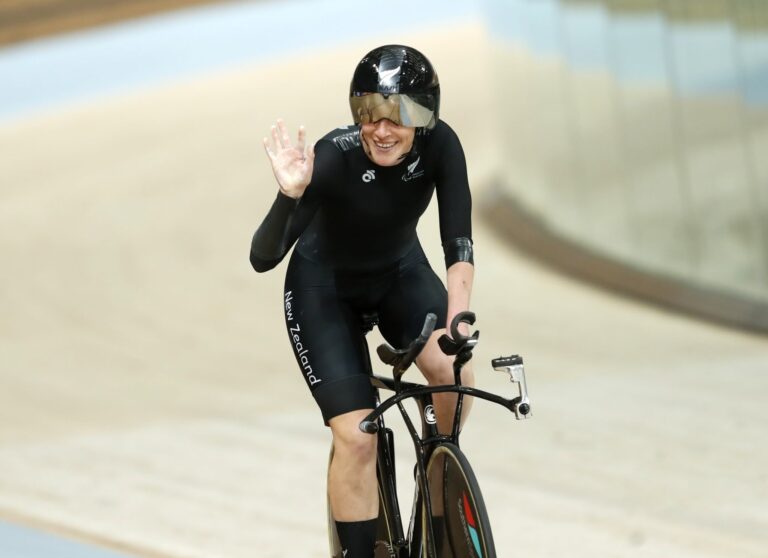Rio 2016 Paralympic Games bronze medalist Rebecca Dubber has today announced she will be retiring from the sport of Para swimming to focus on her career. Dubber made her Paralympic debut in London 2012, but it was Rio 2016 that saw her achieve her long held aspiration of winning a Paralympic medal in the Women’s 100m Backstroke S7. She came close to her second Paralympic medal in Rio 2016 placing 4th in the Women’s 400m Freestyle S7. Dubber was thrilled by her bronze medal performance after overcoming several frustrating seasons of injury.
At a young age Auckland-based Dubber discovered she was a natural in the water where she could move freely out of her wheelchair. She recalls being taught to swim by Para swimming stalwart Sandra Blewett who first planted the thought that she could one day compete at the Paralympic Games. She went on to join the North Shore Swim Club at age 11 and made her international debut at the age of 14.
Dubber narrowly missed selection to the New Zealand Paralympic Team for Beijing 2008 and says this was a pivotal point in motivating her to want to not just compete at a Paralympics, but also win a medal.
She went on to earn her first World Para Swimming Championships medal in 2010, a bronze medal in the Women’s 100m Backstroke S7. Yet her hopes of climbing the podium at the London 2012 Paralympics were marred by an injury, which hampered preparation and left her “gutted“ to settle for 5th place in her two events. Dubber endured more frustration in 2013, missing the entire season as she underwent bilateral elbow surgeries to correct an overuse injury.
Yet despite her interrupted preparation, Dubber won a gold and silver medal at the 2014 Pan Pacific Para Swimming Championships. She went-on to win a pair of silver medals in the same events at the 2015 World Para Swimming Championships in Glasgow, boosting her confidence ahead of the Rio 2016 Paralympics.
After returning to training post Rio 2016 Dubber set her sights on Tokyo 2020. There were several challenges along the way, including another elbow surgery, delaying a return to the pool.
After careful consideration and many tough, and confronting discussions with her medical team and support network Dubber decided it was time to put her long-term health above her Tokyo dream and step away from her Para swimming career.
Her decision to retire was made slightly easier by the work Dubber had done outside of the pool. Last year she graduated from Auckland University of Technology with a Bachelor of Communication Studies, and throughout her Para swimming career she has been given opportunities to work in a variety of internship roles that have supported her career aspirations such as assisting the Marketing and Communication teams at ANZ, Attitude Pictures and the Halberg Foundation. Dubber now has a permanent position with the Halberg Foundation, in a role that she loves and keeps her connected to her passions for sport and breaking down barriers.
Dubber said: “My dream as a 11-year-old was to represent New Zealand at the Paralympics. I look back on my Para swimming career with pride at what I have achieved and triumphed over. I have been working through various injuries throughout my career and after much consideration and soul searching I have decided to move my focus to all of the other wonderful opportunities out there waiting for me to pursue them. Although I will now not be in Tokyo in 2020 competing I would love to be involved in another capacity. I have always loved the media and have great admiration for Paralympian Paula Tesoriero and the wonderful job she did as a reporter at the Rio 2016 Paralympic Games. It would be amazing to be over in Tokyo sharing the team’s stories of success with everyone back home in New Zealand.“
She continued: “I remain incredibly passionate about the Paralympic Movement and the power it has to challenge perceptions of disability across the world. As a Paralympian whether I am winning medals or not, I believe I have the ability to leave a legacy that benefits all New Zealanders. I would love to give back as a mentor for young Para athletes and continue to promote the Paralympic Movement as an ambassador.“
Malcolm Humm (High Performance Director, Paralympics New Zealand) said: “Rebecca has been highly successful in what can be considered one of the most competitive classifications in world Para swimming. Her work ethic is unquestionable and an attribute that resulted in her bronze medal win in Rio despite a constant battle with many injuries. Rebecca has not only been successful in the water but is an example of how to balance competitive Para sport at the highest level with preparing for a career outside the pool. We look forward to working with Rebecca to continue her involvement with the Paralympic Movement and wish her all the best for her future endeavors.“
Dubber was a key member of the New Zealand Paralympic Team that produced performances in Rio making it the country’s most successful Paralympic Games ever. The New Zealand Paralympic Team secured a stunning 21 medals across 12 individual medallists – 9 gold, 5 silver and 7 bronze. Overall, the Team placed 13 out of 159 on the medal table, its highest placing ever, and defended its title of number 1 in the world for medals won per capita during London 2012.


























